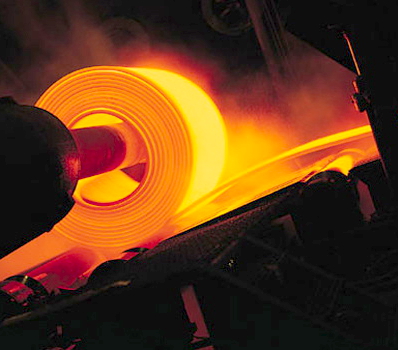New link for green steelmaking
 A steel baron and climate change expert have teamed up to make Australian factories greener.
A steel baron and climate change expert have teamed up to make Australian factories greener.
Sanjeev Gupta is one of the biggest energy users in Australia, running steel mills in Sydney, Melbourne and Newcastle.
Mr Gupta has bought a 50.1 per cent stake in Zen Energy, a company founded by former Rudd Government climate advisor, Professor Ross Garnaut.
The unlikely duo are now working on an array of renewable energy facilities, including solar power and pumped hydro, to feed the company’s steel-mills and feed excess power into the grid.
They say they will be able to power the factories with clean, reliable power, at a much lower cost.
“We're very confident we can deliver on that,” Professor Garnaut says.
“We're happy for the sceptics to watch what we do, and they'll learn what's possible.”
The planned generators could reduce demand on the grid so much, it may impact cost of power for everyone.
“It's going to bring down cost of energy, dispatchable baseload cost of energy, in Australia dramatically,” Mr Gupta said.
Former prime minister Tony Abbott doubts the plan.
“You can't run a steel plant on renewables, you can't run an aluminium smelter on renewables and if we want to keep all of these heavy industries we have got to have reliable baseload power, and the only way you can do that is with coal, or with a gas,” Mr Abbott said in an interview with 2GB.
“A battery will not run a steel mill, a battery will not run an aluminium smelter.”
Mr Gupta said Mr Abbott was partly correct.
“When everybody says you can't run a plant on battery, of course it's right, it's not meant to,” Mr Gupta told the ABC.
“All it's meant to do is stabilise the grid.”
The plan is not to run entirely on renewable energy.
“While every electron that's used won't be from renewable energy, we expect to be putting more renewable energy into the grid than we're taking other energy out of it,” Professor Garnaut said.
The new partners say that a market mechanism, like a Clean Energy Target, would help.
“The rational way forward is to put in place stable incentives that allow Australia to meet its international commitments,” Professor Garnaut said.
“Let business get on with the job of finding the lowest cost ways of meeting our power needs within that framework.”
Mr Gupta agrees.
“You have a country which is blessed with all the natural resources to allow you to be perhaps the lowest cost energy producer in the world,” he said.
“And yet you are the highest cost producer of energy in the world.
“So to put it bluntly, it's broken and it has to be fixed.”








 Print
Print